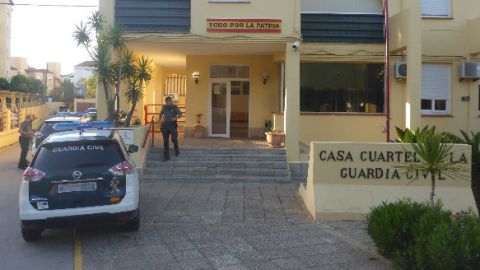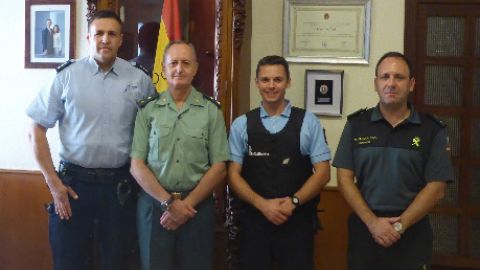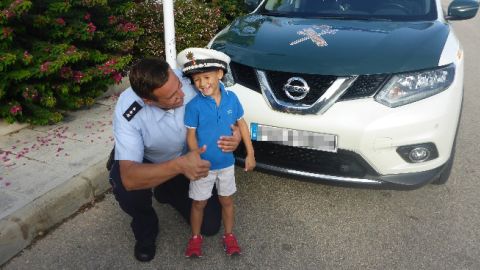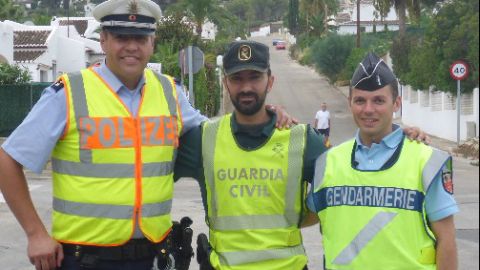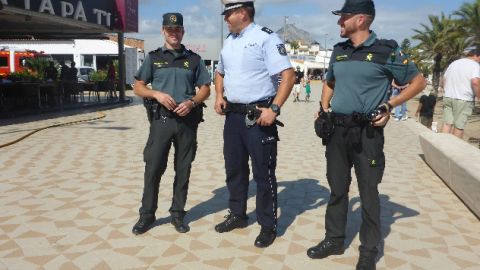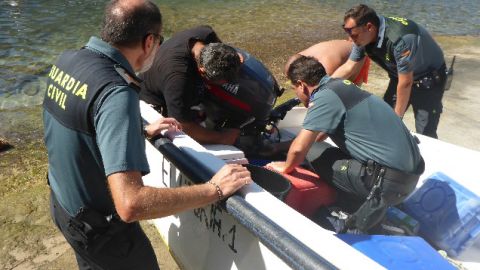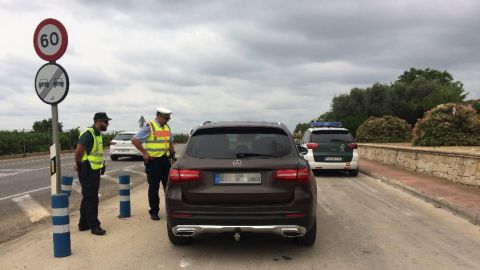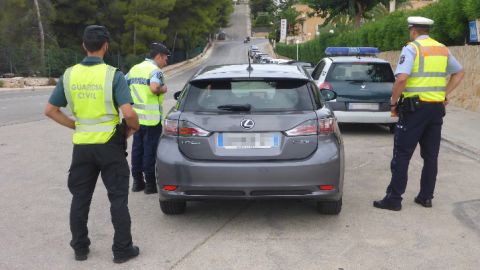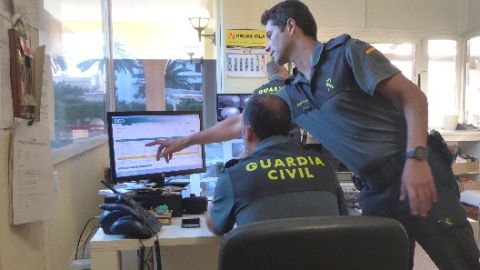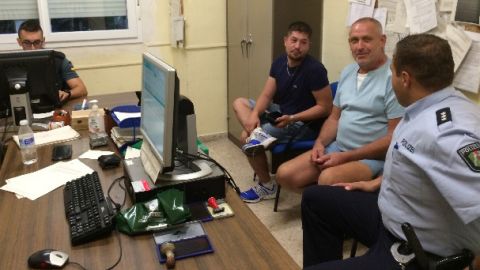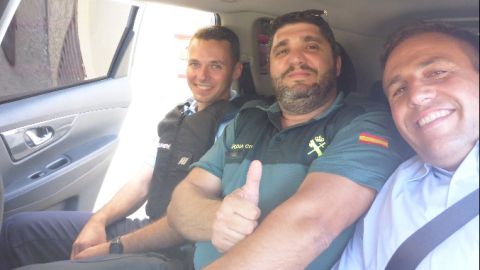"Buenas, soy Varon un companero de la Guardia Civil!" were the first words a colleague from the Guardia Civil said to me. I had just landed at Alicante airport to support the Guardia Civil in Spain as part of the "Foreign Commissariats". Not that they couldn't have done their job without me, but as it soon turned out, my bilingualism and understanding of police work meant that I was able to help the local police officers when dealing with German-speaking tourists.
How did I actually come to apply for this assignment? Well, it was more of a coincidence. "Don't tell me you want to go to Spain!" a supervisor asked me casually in a conversation. I then looked at the job advertisement and, after consulting with my family, applied for this foreign assignment as part of the "Foreign Commissariats". Between May and September 2018, there were several places in Spain that needed support.
The application
The prerequisites for the application were experience in guard duty, a certificate to carry the multi-purpose baton (EMS-A) and, of course, knowledge of the Spanish language of at least B1-B2. I fulfilled the official requirements, as I am on duty as a security guard. I didn't have written proof of my Spanish language skills, but I am a native speaker. My mother is Spanish. I was born on the island of Tenerife and regularly spend part of my vacation there to visit the Spanish part of my family.
I only applied for the month of September, as the vacation quota for our station was not exhausted and I didn't want to cause additional staff shortages for my colleagues.
In May, after a language test on the phone with an officer from the Guardia Civil in Berlin, I was told that I would be assigned to the Cuartel (barracks) Javea of the Comandancia Alicante in September. "Barracks" - a term with a military connotation, just like the Guardia Civil sometimes is.
The journey
I then started planning the trip and would like to take this opportunity to thank the Ministry of the Interior again for the really great support, as the organization around the transport of my service weapon turned out to be not quite uncomplicated.
After landing at Alicante airport, the farewell greetings from most of my colleagues came into my head. "Have a nice vacation!" they wished me. I didn't even want to get into that mood. I just hoped that my luggage, including my service weapon, had found its way to Alicante.
There were two men in civilian clothes at the baggage carousel. One of them was clearly holding a Guardia Civil high-visibility vest. I introduced myself to them and asked if they were waiting for a colleague from Germany. That's how my Spanish colleague Varon greeted me in a friendly manner.
After I was able to collect all my luggage and was personally handed my service weapon in the security area - contrary to my fears that it could have simply been placed on the luggage conveyor belt - Varon took me to my accommodation in a civilian Guardia Civil vehicle to Benitaxell, a small mountain village with around 4,000 inhabitants near the town of Javea or, as the local "Valenzianos" call it, Xábia.
The area of operation
The city of Javea has around 150 thousand inhabitants in the summer and around 40 thousand in the winter months. Around 50 officers are on duty in the Cuartel of the Guardia Civil. Around 15 of them had an apartment in the Cuartel. There were single apartments and also apartments occupied by colleagues and their families. These were made available free of charge.
It felt very strange to see colleagues walking through an office building in their free time to take their children to kindergarten. An atmosphere that did not fit in at all with the rather strict, military character of the Guardia Civil.
The accommodation
My accommodation in Benitaxell was about 13 square meters including the bathroom and was to be my home for the next four weeks. No meals were provided in the accommodation. I had the opportunity to eat out in four different restaurants. Two of them were a little out of the ordinary because they would have involved a walk of between 1.5 and 2 hours. In addition, a mountain ridge had to be conquered, which had already served twice as the mountain finish of Spain's biggest cycling race "La Vuelta". You would probably have been hungry again by the time you got back. However, the remaining two catering options were good to very good, so that the two more distant restaurants were not really missed.
A gendarme from France was also staying in the hostel at the same time as I was. Jerome usually works in the south of France, had completed further training in Spanish through his employer and was trying out his newly acquired language skills for the first time.
Trip to the service
In the morning, we were picked up at our accommodation by the patrol, as the radio patrols are called, and then dropped off there again by the follow-up shift. This was necessary because the office was eight kilometers away and no transport had been provided. Regardless, the cab service ran smoothly for the most part. The only reason why the courier journeys were delayed was the operational situation.
Acceptance of the Guardia Civil among the population
I was struck by the respect with which people treated the Civil Guard, regardless of the reason for their deployment. There was never a loud word or wild discussions, as our colleagues in this country are used to. Due to the temperament I am very familiar with, which Spaniards can certainly display, I actually assumed before the start of the trip that there would be more "life" in the conversations here. But that wasn't the case at all.
People were also very open-minded towards me and I didn't hear people say things like "Are you wearing costumes?" or "Blue and white party bus" once in the four weeks, even though there were a lot of young holidaymakers and locals on the streets.
I was always perceived and approached very positively, and not just by German tourists. Many said in conversations that such cooperation in the area of policing can be very beneficial for the growing together of peoples in Europe.
My day-to-day work
I was on patrol or on duty with my colleagues for the entire shift. I only actually went to the police station in urgent cases. Once a shift, we went to a typical working-class Spanish restaurant. Usually when it was really busy and full of guests. There we would drink a coffee and eat a bocadillo or a toastada, an elongated bread roll toasted with cold cuts or without being heated. I don't know such restaurant visits from Germany. When I asked whether this was common practice, I was told that the perception of police presence was higher in full restaurants than if you ate your meal at the police station. They are also entitled to a 30-minute break if the situation allows it.
In many respects, the operations were similar to those in North Rhine-Westphalia, although the areas of responsibility of the Policia Local, Guardia Civil and Guardia Civil Traffico are more clearly separated.
The majority of all operations were in the area of property crime. Especially in a tourist stronghold like Javea, holidaymakers are always victims of theft and burglary. I was always called in when the other person only spoke German.
In addition to the operations, checkpoints were repeatedly set up in road traffic. The main focus was on possible drug couriers and illegal weapons transports. For this purpose, vehicles and their occupants were checked and searched during the suspicionless checks.
Furthermore, the unloading of fish catches was monitored in the port of Javea. Here, too, the Guardia Civil is responsible for monitoring. All industrial catches had to be sold via the auction hall. Selling directly to the end customer was prohibited.
One mission and the encounter with a child will certainly remain a special memory for me.
The most beautiful time of the year becomes the saddest
In the second week, we were called to a "dead person in apartment" in an apartment building. On arrival, it turned out that a 68-year-old German woman from NRW had died. Her husband was still in the apartment and didn't speak a word of Spanish. The man was, of course, in great grief due to the circumstances. Seeing a German police officer, and one from North Rhine-Westphalia at that, was very reassuring. This is where I benefited from the training course "Delivering death notifications" as part of the Protestant police chaplaincy, which I attended years ago.
Little and great hero
During a patrol, a 5-year-old boy suddenly ran up to my colleague Varon and suddenly took him in his arms. I initially thought it might be a member of my colleague's family, but quickly realized that the boy spoke fluent German as well as Spanish. After talking to the German parents, it turned out that the now 5-year-old Nelio had ridden his balance bike into the pool when he was three years old. He was immediately pulled out by his parents and given artificial respiration. By the time the Guardia Civil arrived, in the person of Varon and others, the boy no longer had any vital functions. After resuscitation by colleagues and subsequent treatment of the child in hospital, there was a chance of survival. After two weeks in a coma, the chances were not so good that the boy would survive the events without harm. Bastian's father then spoke of a miracle that the doctors could not have explained. The boy had learned to speak and walk again within three days, although the doctors had assumed that he had suffered severe damage based on the MRI images of his brain. The boy knows all of his rescuers personally and is always delighted when he meets them by chance, said the father.
Conclusion
The assignment abroad gave me personal insights into the work of the Guardia Civil that I would never have been able to gain without the stay. The local Guardias made good use of the fact that two police officers from abroad were available, which made it much easier to deal with the tourists. I think that the Spanish colleagues and the tourists benefit equally from the "foreign police stations" and that the four-week period is sufficient to provide adequate support. I can only advise all interested colleagues who meet the requirements to apply for this assignment and gain the experience.
